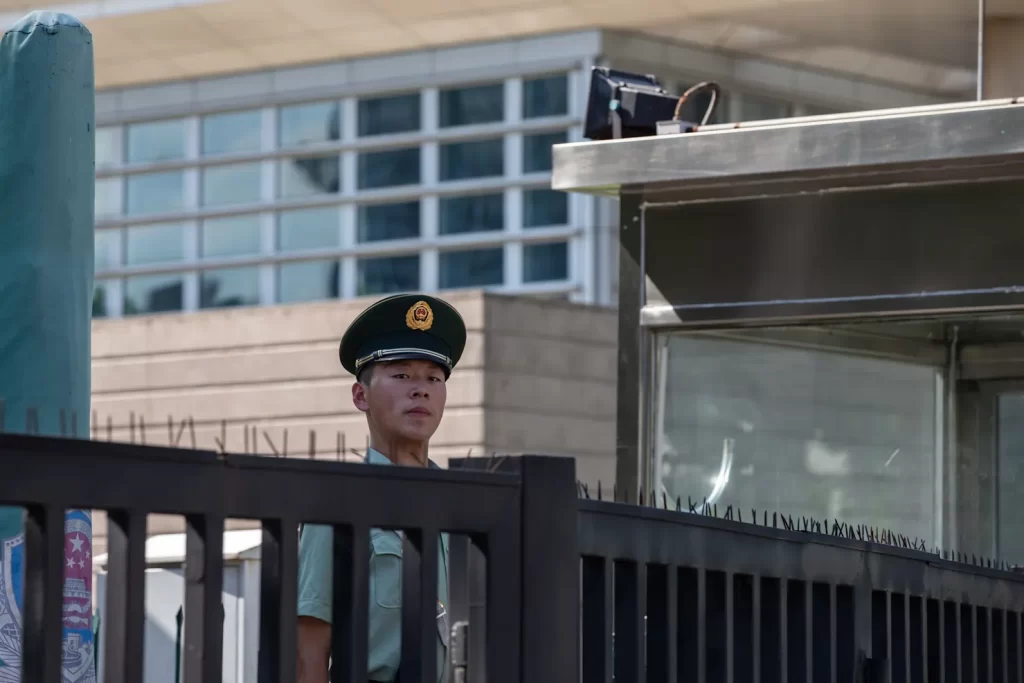US Bans Government Staff In China From Romantic Or Sexual Relationships With Chinese Citizens
This new directive marks a significant shift in policy, reflecting heightened concerns over security risks in U.S.-China relations. While some U.S. agencies have previously enforced restrictions on relationships with foreign nationals, a sweeping ban like this hasn’t been publicly acknowledged since the Cold War era.
The move suggests growing apprehension within the U.S. government about potential espionage risks and foreign influence operations. American diplomats in other countries typically have the freedom to date and marry locals, making this policy particularly notable.
It remains unclear whether this ban will be extended to other high-risk countries or if it will be reconsidered under the new ambassador’s leadership.
This expanded policy highlights the growing concerns within the U.S. government about security risks in China, especially in light of increasing tensions between the two nations. While a more limited version of the rule was enacted last summer, the decision to broaden it just before President Trump took office suggests it was a priority for some lawmakers and officials.
The lack of a clear definition for “romantic or sexual relationship” raises questions about how the policy will be enforced and whether it will face challenges. Given that members of Congress reportedly pushed for stricter rules, this move could be part of a broader effort to tighten security protocols for U.S. personnel in high-risk regions.
It remains to be seen whether this policy will extend beyond China or if similar restrictions could be implemented in other countries viewed as security threats.
This policy puts U.S. personnel in a difficult position, particularly those who may have formed relationships while stationed in China. The exemption process adds some flexibility, but the potential for forced separation or job loss is a significant consequence.
The fact that it was communicated privately rather than publicly announced suggests that U.S. officials wanted to avoid drawing attention to the measure, possibly to prevent diplomatic backlash or internal dissent. However, once details like these emerge, they tend to spark debate—both within government circles and among affected individuals.
It will be interesting to see if this policy leads to further restrictions or if similar measures are considered for other nations where the U.S. sees security risks.
That kind of silence from the State Department and National Security Council is typical when it comes to sensitive security policies. It suggests they don’t want to fuel further scrutiny or diplomatic tensions with China.
Burns’ return to The Cohen Group—a high-profile consultancy with deep government ties—also indicates that he’s stepping away from direct diplomatic affairs, making it even less likely that he’d comment publicly.
If the policy leads to pushback from affected personnel or raises concerns in Congress, the administration might have to provide more clarity or justification. But for now, they seem content to keep things under wraps.
You may be interested

FCT Police Spokesperson SP Josephine Adeh Honoured with Best Police PRO Award at 2025 Nigerian Police Awards
gisthub - Jun 05, 2025Superintendent of Police Josephine Adeh, the FCT Police Command’s Public Relations Officer, has clinched the prestigious title of Public Relations Officer of the…

Woman Whose Lip Was Severed by Ex-Boyfriend Shares Recovery Seven Years Later
gisthub - Jun 05, 2025Kayla Hayes’ story is a powerful example of resilience in the face of unimaginable violence. In 2017, at just 17, she was brutally…

Pornhub Ban Spreads Across Europe Over Under-18 Access Dispute
gisthub - Jun 05, 2025Pornhub’s bold exit from France is a striking clash between digital privacy and regulatory zeal—a flashpoint in the ongoing war to shield minors…














Leave a Comment